 "What's needed is a kind of "pit bull terrier" state, which would be prepared to start at least a local conflict, to show the weakened Russia how events could develop."
"What's needed is a kind of "pit bull terrier" state, which would be prepared to start at least a local conflict, to show the weakened Russia how events could develop." (Andrei Fursov, speaking of Ukraine's purpose for the US.) The following article is a very readable lecture transcript by Andrei Fursov (Director of Russian Studies, Moscow University. Member of the International Academy of Sciences) dated 2014/04/14. Transcribed from the spoken Russian and compiled from translated English dubbed text. All headings added by Wikispooks to aid with readability and citation.
This is an impressive, comprehensive analysis of the February 2014 Ukraine coup from the perspective of a senior Russian academic. It details the interests and affiliations of the main Ukrainian domestic players - oligarchical clans many of whose leaders have dual nationality - with some shocking and little known detail. It exposes the glaring hypocrisies and double standards of the western sponsors of the coup and their Russian/Ukrainian '5th Column traitors'. It sees the coup and Russia's successful incorporation of Crimea as major game-changing events in the on-going, US-lead post-WWII machinations of the West to subdue Russia to its own agenda and outlines how Russia should now respond. (Wikispooks Comment)
 "What's needed is a kind of "pit bull terrier" state, which would be prepared to start at least a local conflict, to show the weakened Russia how events could develop." (Andrei Fursov, speaking of Ukraine's purpose for the US.)
"What's needed is a kind of "pit bull terrier" state, which would be prepared to start at least a local conflict, to show the weakened Russia how events could develop." (Andrei Fursov, speaking of Ukraine's purpose for the US.)
All-in-all a must-read for westerners needing to understand what is really happening in both the Ukraine and the wider Anglo-US-NATO globalisation drive which it brings into sharp focus.
Original source of document is https://wikispooks.com/wiki/Document:Battleground_Ukraine
Oligarchical topography of Ukraine
A lecture by Andrei Fursov with translated English text
Contents
- Introduction
- National traitors
- The Ukrainian oligarchs
- Rockefellers, Rothschilds and Intelligence agencies
- Israeli interests in Ukraine
- The wider global context
- The "Yellowstone Threat"
- The origin of the current situation
- The goals of the interested parties in the Middle East
- The intelligence service of the Fourth Reich at work
- Why did this happen now?
- What the West wanted
- The death of Oleksandr Muzychko
- The infantile Garry Kasparov
- Goodbye, America!
- The required Russian domestic changes
Firstly, let me say that sometimes it's pleasant to be wrong. Well, I got it wrong. At the beginning of February my colleague, Elena Ponomarëva, and I discussed the question, could we take Crimea? I was a pessimist and said, 10% chance that we'll take Crimea. We won't get it because the West will react aggressively, and our authorities lack the courage. She said, on the contrary 90% chance that we take Crimea, and 10% chance that it doesn't happen. She was right. I was wrong.
Without doubt, the re-unification with Crimea is a very important landmark. In a recent TV interview I said that this is genuinely the end of the disgraceful era which began in Malta on the 2-3rd Dec 1989, when Gorbachev surrendered absolutely everything to Bush, even what wasn't asked for.
After that everything possible was given up. Rays of hope began to appear later, during the Putin administration. There was the war of 08.08.08. But later we failed to support Libya. Although we did put the foot down at Syria. But this is all far away from Russian lands. But Ukraine and Crimea - this is a completely new situation. We started to re-take our territory, little by little. Started doing as the Muscovite princes did in the 14th, 15th century, what the first Romanovs did, and the Stalin system in the 1930s, all of which was: leaving the historical zone of defeat.
But leaving the historical zone of defeat means not only external matters, we are now tearing up the global status quo, which took shape in 1991-94. Meaning: disintegration of the Soviet Union, the uranium deal, the shooting at the Moscow White House, the Budapest Memorandum.
But overcoming defeat has not only an external aspect but also a domestic aspect. Yeltsinism gave raise to a whole stratum of people, whom our president called national-traitors. That is, the fifth column - in the authorities, in business and in the media. In particular, they revealed themselves during the events in Crimea. That was a real moment of truth, moment of choice. People's true colors became apparent, in various spheres. And it was an very import experience for this reason: One could clearly observe the application of double-standards.
What do we mean by double-standards? For example: There was a time when the Brits annexed the Falkland Islands. They said: "Well, why not. There was a referendum in the Falkland Islands and the residents came out in favor of joining up with Britain, and that's sufficient."
"Crimea is a different matter altogether ..." -- although the situation is analogous.
Today we're talking about the Ukraine situation from a number of angles. It's a multi-faceted situation, like all big situations. Many different aspects have led to what happened. Concerning not only the clash between Russia and the West. There's a lot else going on too.
Firstly, it all began with a conflict within the Ukrainian oligarchic class. A great analyst is Vladimir Matveev. I very much recommend you look him up. A number of his analyses are out on the net. Moreover you don't need to be erudite to read his books. Anyone with higher education can read them. He's been very active on the subject of Mossad in Ukraine. He gets continuously threatened. Now he needs to get out of Ukraine and is having problems with that.
We are talking about the oligarchs.
Later we'll talk about the interests of the West - The Europeans and the Americans have different interests.
Next, the interests of Israel.
Then we'll run through the key events originating from the Banderite-American coup in Kiev, which continue to unfold.
Firstly - the Ukrainian business clans.
Ihor Kolomoisky's Privat
The next corporate group is Privat. This is the most interesting one. It's the group of Ihor Kolomoisky. Kolomoisky's worth is 3 billion dollars. His partner is Gennady Bogolubov. Kolomoisky is a very interesting figure. Not only because he called our president a schizophrenic. 'He is the engine behind what is currently happening in Ukraine.
In 2012 analysts such as Matveev warned that there would be a very brutal conflict in 2013 between the business clans, between the oligarchs. And that's what happened.
What do we mean by clans in Ukraine? First we need to understand the division of power at the end of 2013. There are four basic clans.
Firstly the Donetsk clan - Rinat Akhmetov, whose fortune is estimated at $16 billion. His main interests are mining and steel production. This clan includes Boris Kolesnikov, the Kluevs, Yury Ivanyuschenko.
The second clan is the Yanukovych family. They control principally the customs officials, farming and infrastructure. By comparison this clan is a bit poorer, but they have held very powerful administrative positions. Yanukovych's "achievement" is that during his presidency the welfare state of Ukraine was finished off. Or rather, what was left of it. Destruction of the welfare state began during the time of Kuchma. Yuschenko and Tymoshenko significantly reduced the welfare state. And Yanukovych finished it off.
It's very interesting to examine the growth of the billionaire class. In 2010 the number of billionaires in Ukraine was 8. By only 2011 there were 21.
The Yanukovych regime greatly favored the growth of the billionaire class. Yanukovych's main sponsors were Rinat Akhmetov and Dmitry Firtash. The division of labor was: Ahkmetov controlled the government and Firtash the presidential administration.
The next massive bloc is Firtash, which is RosUkrEnergo, energy production and chemicals. They are the main partner of Rothschild in Ukraine. One of Firtash's main advisers is Robert Shetler-Jones. I'll talk about him later. An entrepreneur from the Rothschild group. Moreover, he's from MI6.
By the way, in all British corporations, in order to occupy a senior position, it is mandatory to be vetted by MI6. Otherwise you don't get it.
The next corporate group is Privat. This is the most interesting one. It's the group of Ihor Kolomoisky. Kolomoisky's worth is 3 billion dollars. His partner is Gennady Bogolubov. Kolomoisky is a very interesting figure. Not only because he called our president a schizophrenic. He is the engine behind what is currently happening in Ukraine.
Born in 1963. Jewish. He very actively supports the Hasidic group Chabad, which is not a sect, it's a movement. He's the main sponsor of the Dnepropetrovsk Jewish community. An old friend of Berezovsky. He owns about 200 companies, controls 40% of Ukrnafta, the media. A big fan of soccer. He owns: FC Dnipro, of Dnepropetrovsk, Arsenal Kyiv, and Hapoel of Tel-Aviv. He's the vice president of the Football Federation of Ukraine. Its president, Surkis, is a millionaire too, albeit not as big as Kolomoisky. He owns Dynamo Kyiv. Information frequently appears in the media about Kolomoisky's connections with international organized crime. He really wanted to buy up the assets of Sevastopol. Indeed he was on the verge of buying. He is the sponsor of Yuschenko, Tymoshenko and Klitschko, and of, paradoxical though it is, the ultra-nationalist Tyaghnibok.
It might seem strange that Kolomoisky the Jew would support Tyaghnibok the ultra-nationalist. But the main goal of Tyaghnibok is to get Ukrainians and Russians fighting each other. His ultra-nationalism is not anti-semitic.
Then there's another group in Ukraine, which no-one wants to talk about. Victor Pinchuk's group. He's the son-in-law of Kuchma. Pinchuk's people are Tigipko and Yatsenuk. According to experts such as Matveev, whom I mentioned and strongly recommend you look up, because of his enormous expertise, Pinchuk is very closely linked with the United States and with British intelligence, MI6.
Finally, one more part of the Ukrainian economy, which experts prefer not to write about. Arms trade, military technology and narcotics. Experts name dozens of names here. The main ones are: Vadim Rabinovitch, citizen of Israel, Ukraine and Hungary, Sergei Maximov and the Derkatch family. The elder Derkatch is Leonid Derkatch. He was the head of the Ukrainian security service, SBU. Now he holds all the cards, as he's dealing in weapons. Rabinovitch is a very interesting figure. He supports the gay-lesbian party Raduga and the Kiev feminist group Femen. Often quarrels with other Jewish oligarchs.
In general what characterizes the situation in Ukraine is that there isn't a single political center, This propagates into Ukraine's Jewish community too. They don't have a unified center either. There are constant squabbles, to impose their point of view. There are angry clashes between the secular part and those who support the Hasids and Chabadists. For example, there was a very angry conflict over the construction of the memorial at Babi Yar. Kolomoisky insisted there be a synagogue and an iconic building. Vitaly Nakhmanovitch said no, the place should be absolutely secular. There are very severe clashes.
For example, In 2011 Kolomoisky established the European Jewish Parliament, which sits in the European Parliament. It has a leaning toward Hadism and Chabad. The secular group is, for example, Vyacheslav Kantor. They haven't accepted all of this. There is an on-going angry clash. There are humorous situations. For example, Kolomoisky supports Chabad. Chabad supported Yanukovych during the election. Kolomoisky has openly come out against Yanukovych. This whole tangle of clashes has flared up. In 2013 it got very nasty. Moreover, the greed and stupidity of Yanukovych's mafioso clan revealed itself when they imposed their fees not only on the medium-sized businesses, they even went into the small businesses. Basically, they had to pay 60% to this family.
So you can understand those who went to the Maidan. They had had enough of that clan.
A different matter is who exploited the situation. Marx and Engels wrote in 1848 about revolutions: We now know what role stupidity plays in revolutions, and how scumbags will exploit it. So that was the Ukrainian oligarchs.
The next players on the Ukrainian field are: the Rockefellers and the Rothschilds. The Rothschilds entered Ukraine immediately after Ukraine became free from the Soviet Union. The Rothschild group entered in 1991-95. Likewise MI6 entered with a free hand.
Basically all western intelligence agencies had a free hand in Ukraine. That's why some experts call Ukraine the sandpit of the intelligence agencies. The CIA has a whole floor dedicated to Ukraine. We got this information now. But those who worked under cover in Ukraine in the late '90s were already reporting that SBU is a subsidiary of the FBI and the CIA, who were actively working there. Likewise the BND (German intelligence) were very actively working with their Banderite underground. And MI6 was working more unnoticed.
I'm not even going to mention the Israeli agents. I'll come to that later. Basically they all had a completely free hand. Firtash soon became the main partner of the Rothschilds. His partner from the Rothschilds was Robert Shetler-Jones. He is considered by experts to be the instigator of the gas wars between Ukraine and Russia. He was the one getting Ukraine and Russia to fight over gas. Notice the Rothschild group is at work in the East of Ukraine. That's the area they want to get their hands on, in particular the Dnepropetrovsk region, where the bank "Rothschild Europe" and their "Royal Dutch Shell" are operating.
The interests of the Rothschilds strongly clash with the interests of Russia. Remember that when we talk about the interests of the USA and of Britain, there are different interest groups in these countries. Not for nothing the great French geopolitical analyst Alexandre Del Valle talks about not the foreign policy of the US, but the foreign politicians of the US. There are different clans. The clans behind Obama want one thing, and the clans behind the neo-cons want something completely different. So they really have different foreign policies. The Rothschilds busily exploit crises and chaos which can be manipulated by the world players in order to buy up assets in Ukraine, likewise in Central Asia, and where possible in Russia. It's about gaining control of resource economies. That's a very important aspect.
The Rockefellers have more modest interests. For example, Chevron Corporation, which is in the Rockefeller empire. The Ivano-Frankivsk region was basically handed to them by Yanukovych. It's hard to even say whether Ivano-Frankivsk belongs to Ukraine or belongs to Chevron Corporation. The Rockefellers are more interested in Western Ukraine than Eastern.
The next player in Ukraine is Israel, which is represented in Ukraine by Mossad and practically all of the Israeli intelligence services. Including the Komemiyut management, that's an administration within Mossad, whose business is the physical removal of Mossad's opponents. Komemiyut is Hebrew for "sovereignty". This Komemiyut administration, for example, they were the ones who killed the Iranian nuclear scientists. They are very effective, like Mossad generally. Aman is military intelligence service of the Prime Minister. Shabak is the internal security service. Shin Bet, Nativ - they are all present in Ukraine. Israel's current ambassador in Ukraine is Reuven Din El - formerly a Mossad resident in the CIS countries, he was thrown out of Moscow, and then received in Ukraine as ambassador.
Vlad Lerner of Nativ is the First Secretary of the Israeli embassy. In this respect you have to give them their dues, the Israeli intelligence services, for how they work in Ukraine. Also important to be clearly aware of - Mossad operates in close contact with CIA and MI6. It's a unified snake of intelligence agencies, which gets the job done.
All of the western intelligence agencies, including Israel's, are very active in the higher education establishments in Ukraine. This year I gave a lecture at the Seliger youth forum. Guys from Kiev told me that in almost all large institutes of higher education in Ukraine, especially in Kiev, there is a NATO room, a NATO department. If you want to make a career, you have to attend several of their programs. That's what's going on. The Anglo-american intelligence services are not falling behind Mossad.
What is Israeli intelligence doing? Under the guise of looking for students who are Jewish or have Jewish roots, they try to pick out all the talented students with good prospects, and send them to study in the West. Of all the universities in the West, where I have taught, Columbia, Yale, New York, the most powerful where I taught, was the Central European University of Soros, where only Jews are educated, moreover very well-prepared and carefully selected ones. On the course I lectured on there were three guys from Russia. Not from Moscow, but from Arkhangelsk, Ivanovo and Petersburg. These guys were really chosen ones, genuinely powerful. Central European University is the only university where I gave lectures. I was dealing with junior colleagues more than with students. The standard pace of study at the Central European University is 400 pages per day, as it was with comrade Stalin. Many can't endure it.
I know a student who came from the Russian State University for the Humanities, for example, who studied for a month, and said that she physically can't continue, and she went home. And of course the tuition is conducted in English, although they welcome people with more languages.
Let's look at the situation in and around Ukraine in a wider, global context, considering the role which the West collectively, by their various games, has assigned to Ukraine.
Firstly - the battle against Russia.
secondly - the clash with China, and
thirdly - concerning the unleashing of war in the Middle East.
Let me repeat, By no means is it all groups in the West, who want to unleash war in the Middle East. But quite a few of them are interested in it. Likewise Saudi Arabia and Israel are interested, for a whole series of reasons. And these three vectors converge in Ukraine - all three plans unite into one.
That is, the global geo-economic and geo-political re-distribution of assets in the course of the global economic crisis.
Of course, there is this Yellowstone threat - I mean the super-volcano. That could completely change the rules of play at any time. The super-volcano could solve for the Western elite the very problems which they've been trying to solve for the last 50-60 years and have been unable to. An eruption of the volcano could solve those problems. But that's another subject.
Wikispooks note: On its face this seems a bizarre diversion from the subject in hand - suggestions on Fursov's reasons for the diversion welcome on the discussion page.
Let's look at how the situation came about that preceded the current situation, namely: It's 1991. The USSR has collapsed. After 10 years of robbery the Americans are wondering "should we go for more?" Evidently they decided not to, as it would have fallen to the Chinese. Besides, Yeltsin's team seemed to be running the country into the ground. Then suddenly in 2001 came the attacks in New York. The Americans' political vector shifted to the Middle East. They became occupied with the Middle East. i.e. they got distracted from the goals.
Then we had Iraq, Afghanistan. During this time the Russian Federation got room to breathe, rise onto its feet again. Then there was the war of 08.08.08, which showed the West they had somewhat let go of Russia.
After that the Medvedev episode, when we didn't react on Libya. Evidently, 08.08.08, Putin's coming to power, and our position on Syria, in spite of the West's pressure, changed the approach toward Russia of those who brought Obama to power.
Two points to note:
- Obama established his military doctrine during his address to the Australian parliament on 17 Nov 2011, and
- A new military doctrine of the US, established by Obama on 05 Jan 2012.
In the new doctrine of 05 Jan 2012 is established that the US can wage one war and some other indirect actions in other parts of the world. Previously it said two wars - meaning they're not up to that any more. More interesting statements made by Obama in the Australian parliament 17 Nov 2011: This was said in Obama's vague style. But if we call a spade a spade, it means:
Firstly: in this doctrine: political-economic encirclement of China. Control over the flow of energy into China. That's why we have seen their naval power being moved to the straits between the Indian Ocean and the Pacific. This is why land-based energy supply routes are so important for China. Sea-based supply routes can be easily interrupted by the Americans.
Secondly: applying pressure on the Russian Federation, as a partner of China, and as a country beginning to rise up.
Really, Obama didn't say anything new here.
There's an organization Stratfor -(Strategic Forecasting Inc), a kind of private CIA. Their founder and chairman, George Friedman, said openly that the primary task of the United States is the destabilization of Eurasia, in order that there could never be a state or group of states able to challenge the US.
The key region for dealing with the problem of China and Russia is the Middle East, which is also important in and of itself: Oil, Iran, the Caspian, Azerbaijan in particular. Pay attention to Azerbaijan. Have no illusions. This is a faithful partner of Israel and the US. This country pumps oil to Israel and Ukraine, receives arms from USA, Ukraine and Israel, and has Israeli advisers busy working with its army. In the event of a conflict with the Armenians, who are good warriors, I don't think that the Azeribaijani Army would perform any better than they have up to now, but it's a fact that today they are more capable and better trained.
The Americans need controlled chaos and civil war in Ukraine.
The Europeans need Ukraine whole - a market where they can dump all kinds of junk. A market for cheap labor, on top of everything else. It is truly an unexploited consumer market to be opened up with 44 million people, now minus Crimea.
Obama. That is, the clans behind Obama ( By the way, my views about Obama haven't changed. General Ovchinsky and I wrote an article, when Obama had just become president, entitled "The Cardboard Box President". We haven't changed our view since then.) When I say "Obama", I mean the clan behind him. From the very beginning these clans wanted to improve relations with Iran to the detriment of relations with Israel, obviously. How is Iran useful for the United States? Imagine Iran as a partner of the US. Firstly, it's a much bigger country than Israel. It occupies a magnificent geopolitical position. Has magnificent resources. If Iran is a partner of the US, then you have an Iran-India axis against China, against Russia, while maintaining the tension. Israel has the tension of being a Jewish state with Arabs, while Iran is Shi-ite. The tension is primarily with the Sunni monarchs, with Saudi Arabia. Thus the tension will remain.
Obama has taken a whole series of steps intended to improve relations with Iran. A whole wave of publications appeared, claiming that the US was going to abandon Israel. But Obama found himself under the powerful influence of a variety of groups, including the pro-Israel lobby. Improvement of relations with Iran isn't happening so far. What's interesting is that whether relations with Iran improve or deteriorate, it forces the Americans to solve two problems.
One is to eliminate the regime of Assad. And with that eliminate the "fabulous" organization Hezbollah. We don't regard Hezbollah as a terrorist organization. It's a Lebanese Shi'ite organization, which is truly global. For example: one of the key centers of the Hezbollah is the region of Iguazu Falls. Anyone know where Iguazu Falls is? In South America. It's the border area of Paraguay, Uruguay and Brazil. There is a huge number of tourists there. Al-Qaeda, Hezbollah and Hamas have made themselves a little nest there. But the main thing is that the Lebanese diaspora is there. When we hear "diaspora" we think of the Jewish diaspora, the Armenian diaspora. But the Lebanese diaspora is no less sizable, it's just quieter. They don't make a lot of noise. 100 years ago the Lebanese began to establish themselves in Africa, South America. They moved into the part of Africa where diamonds are mined: Sierra Leone, Liberia, and a few in Angola. In this border area, where the Lebanese diaspora is, along with Hezbollah and other organizations, they buy cocaine and transfer it on submarines to Western Africa. Previously they used submarines sold by Ukrainians. Now those submarines are out of commission and others are used. The cocaine is transferred to Sierra Leone, where it is exchanged for diamonds. With the diamonds they purchase arms. This triangle - Hezbollah, Syria, Iran - gets in the way of the Americans. They take the view, correctly, that eliminating Syria as an Arab partner of Iran, whether relations with Iran are good or bad, Iran will be weaker, and it will be easier to get an agreement with them. The removal of the Assad regime therefore became objective No.1 for the Americans. Likewise for Saudi Arabia and Israel.
But it turned out that the template for the Arab Spring didn't work in Syria, so they had to intervene militarily. But the intervention was foiled, thanks to the position of Russia and China. The West's aggression against Syria was the first really serious military phase toward re-drawing the geopolitical map of the Middle East. Let me stress: the first serious military phase. Libya doesn't count here. That had to do with the fact that Libyan oil was very important for the Americans. The production cost of Libyan oil is $1. So that was very important. But Libya and Syria are different countries with different potential. In Syria it didn't work out for them, I repeat, primarily because of the position of Russia and China. The American offensive against the Russian Federation and China in the Syrian theater failed. That plus the presidency of Putin forced the Western elite to look for other maneuvers.
They started looking for where to attack - and Ukraine came up. Because in Ukraine an explosive situation had developed on all levels: amongst the oligarchs themselves, between the oligarchs and the population. It would have been a shame for the Americans and Europeans not to exploit that. Although, the Americans and Europeans do have completely different objectives in Ukraine.
The Americans need controlled chaos and civil war. The Europeans need Ukraine whole - a market where they can dump all kinds of junk. A market for cheap labor, on top of everything else. It is truly an unexploited consumer market to be opened up with 44 million people, now minus Crimea.
In principle, Ukraine is not currently a member of NATO. But that didn't stop Ukraine participating in all four of NATO´s military campaigns. Thus Veronika Krasheninnikova was right, when she said on TV that for us the current issue with Ukraine is where the NATO boundary will be located. Doesn't matter if Ukraine joins NATO de-jure or not. It's clear that it will become a NATO country.
Moreover, it is absolutely clear that this country is intended to be absolutely anti-Russian, nationalist, Banderite and neo-Nazi. So the dual goal of establishing this anti-Russian state is to apply pressure on the Russian Federation - constantly. The long term goal is to pull Russia into the Western camp and start a fight: We put pressure on Russia. Then Russia, in order to reach agreement with the West, to solve this problem of constant provocations, turns toward the West. Next, Russia becomes a tool for the West to pressurize China. If possible, even get China and Russia fighting with each other - that would be the ideal scenario for the West.
Like they perpetually have Russia fighting with Germany and France. It's the same pattern again and again. The current situation in Ukraine, which began in late 2013, has served this purpose. Hegel talked about "the insidiousness of history". Those 30 days, 15 Feb to 17 Mar, broke everything. And changed the world.
The era which began in the period 1989-94 in our eyes is coming to an end, or has ended. We often quote Brzezinski's words: "Without Ukraine, Russia ceases to be a Eurasian empire." But that's not true. Russia can be a great power even without Ukraine. A different matter is that it will be more difficult and will take longer.
And what is Ukraine? The Eastern part of Ukraine was never part of Ukraine. The Bolsheviks did that. They needed to increase the proletariat ratio in Ukraine. That was the only reason why they moved those regions into Ukraine. But never mind that. The main thing is that Brzezinski's words are not original. He is repeating the words of the German general Paul Rohrbach, who at the beginning of the 20th century foretold:
"To eliminate the danger that Europe, and above all Germany, faces from Russia, it is necessary to completely separate Ukrainian Russia from Muscovite Russia".
Notice that for the German general - Ukraine and Muscovy are both Russia. He is talking about the need to bring about an internal Russian split. That wasn't original from Rohrbach either. He is developing the idea of the German politicians from the end of the 19th century, including Bismarck, who proposed specific means to solve this problem. In particular he emphasized the need to pit Ukraine against Russia, to get their peoples fighting. But why? As he wrote:
,p>"We must cultivate among the Ukrainians a people whose consciousness is altered to such an extent, that they begin to hate everything Russian".
Thus we are talking about a historical psy-op, an information-psychological sabotage, whose purpose is to establish russophobic Slavs - Orcs at the service of the western Saruman. They are the means to separate Ukraine from Russia and to oppose Russia as a kind of anti-Russian 'Rus', as a free, democratic Ukraine of the totalitarian empire. This was all devised under the Galician Project, on which the intelligence services of Austro-Germany and Kaiser German worked, followed by the intelligence service of the Third Reich, later - CIA and BND.
Although I don't have direct proof, there is no doubt that the intelligence service of the Fourth Reich has been at work here, the "Fourth International", known as "Daisy". When D-day and H-hour came, the Galician project and the Banderite underground got the starting gun - figuratively and literally.
Fast forward to the Orange Revolution of 2004, which differs from the current situation. The Orange Revolution of 2004 was organized by neo-liberals. Those behind it in Ukraine and the West thought that this would be sufficient to create the anti-Russian Ukraine. But it wasn't. So during the current events a different approach was rolled out: an alliance of neo-liberals and ultra-nationalists, in effect neo-Nazis. The neo-liberals are the face of the West. And the neo-Nazi militants and storm-troopers were the ones to break the power of Yanukovych, and terrify Eastern Ukraine. Wise people did warn Yanukovych that he shouldn't play with fire with Tyaghnibok and allow him to develop his movement. Yanukovych's plan, as experts have shown, was: We'll pump up Tyaghnibok. Then, at election time, the East, terrified by Tyaghnibok, will vote for Yanukovych. He was playing a kind of chess game. But the West wasn't playing chess at all. They knocked over the pieces and used the chess board for a completely different game.
Firstly - Ukraine is an absolutely non-viable, artificial construction, which could only function normally within the framework of the Soviet Union. Despite being the only post-soviet state, apart from Russia and Belarus, which could have stood on its own feet, it didn't. The Ukrainian SSR was in ways very important in the Soviet Union. Who remembers where Ukraine was placed at the National Exhibition of Economic Achievements (????)? Right in the center! Now it has fallen into neglect, but they are at the center of that Exhibition. The importance of Ukraine was emphasized in every way. And Ukraine could only exist within the framework of the USSR. Outside the USSR Ukraine is not capable of developing. What has kept it afloat? The Soviet heritage, which they have been eating their way through for twenty years. One can marvel again at what a heritage it was, when the Ukrainian oligarchs have been stupidly eating through it more stupidly than the Russian oligarchs, and it lasted twenty years. But, as they said in ancient Rome, "Nihil dat fortuna mancipio" ("Fortune gives nothing forever.") and in 2013 that heritage was finally eaten up. Moreover, Yanukovych was very busy eating it up. Ukraine stood over the precipice. Russia could have saved them. But that was categorically undesirable for the US. That was the first part.
Secondly. After the 2004 Maidan, as I said, the Western puppet-master presumed that it was sorted: people like Yuschenko and Tymoshenko could solve all the problems. But it turned out they couldn't. Yanukovych came to power. He played almost all the same games. Played very inconsistently. Played with the Americans, with Russia. In the end he overplayed his hand.?
The scorecard from these twenty years is positive for the West. They have been very busy in Ukraine: with the help of various non-commercial, non-governmental organizations, they have done a quite fantastic job. Dozens of non-commercial Western organizations have been at work. As for us... do we have any non-governmental organizations busy at work in the sphere of foreign policy? "Russkiy Mir". When did they appear? Not long ago. Their effectiveness... Any other organizations? There is "Rossotrudnichestvo", who have little money. "Institute of CIS Countries" - that's an institution. "Gorchakov Fund" exists too. But all of this is recent initiatives and these organizations don't have the funds.
The Americans have been pumping massive amounts of money into the place. Besides, all these years there has been a Banderite underground operating in Ukraine, in cooperation with the American and West-German intelligence agencies. Moreover, geographically Ukraine is not a Baltic state. Incidentally, who knows when the last "Forest Brother" was killed in the Baltic states? 1960? - 1974. But, you know, there's nowhere to hide really in the Baltic states, but in Ukraine there is. And the Banderite underground has always been there. Of course, the West has always been working with them.
Obviously there were serious domestic reasons for the events of December, January, February (2014). Impoverishment of the population. Dissatisfaction with this miser-oligarch regime of Yanukovych. Now what do we see? The family of Yanukovych is gone. In their place has come the family of Tymoshenko. One family of oligarchs has been replaced by another. They've been putting oligarchs in charge of the cities of the East. Not by chance I quoted the words of Marx and Engels regarding the European revolution of 1848. "We now know what role stupidity plays in revolutions, and how scumbags will exploit it." Indeed, exploit they did.
As far as we can tell from the unfolding events, the greed of the ruling clan was exploited in general and in specific ways from the eventful situation. "D"-day and "H"-hour came on 21 Feb.
Since I am in science and not intelligence, my information is only indirect, but it is confirmed by another analysis too. Towards 18:00 on 21 Feb half of the Maidan was cleared. And it could have ended at that. But you know, between 18:00 and 20:00 ... There were about 15,000 Maidan protesters. There were being shifted by a group of about 3,000 some of whom gave me this information. Walking behind them was Berkut. They reported that all of a sudden Berkut stopped. "We were proceeding, but Berkut stopped." They had been given the order to stop. What happened between 18:00 and 20:00 ? Let us re-create the events. This is my version. I'm not forcing it upon anyone, by any means.
At that point Yanukovych decided that he had won and could start negotiations. Moreover, the Americans had told him they knew where his billion was stashed. Here Yanukovych decided to play a stupid country-boy trick. He decided to trick the Americans, not realizing that they would trick him, by not respecting the agreement. Any they wouldn't exactly forget his betrayal anyway. At this point, when the opportunity to clear out Maidan was lost, events turned in a different direction. I was saying on the 21st, 22nd, that this is a situational loss for Russia, because if the only pro-Russian force we could set up in 20 years was the one fronted by Yanukovych, then that is a poor performance by us.
What was Chernomyrdin up to? He was singing songs and playing the accordion with the Ukrainian oligarchs. Evidently that was his destiny - it turned out nicely for him. What Zubarov was doing we have no idea. But clearly he was making some nice gas deals, hanging out with the oligarchs. The western intelligence, and the non-governmental organizations, they worked with the oligarchs, the intelligentsia and the masses. And look at the result: although Kiev is not a Galician city, 90% of the Kiev intelligentsia are supporters of the Galician Project. That means the Western intelligence did a good job. Indeed, that was their job.
A different matter is that we didn't work like that. We were chatting with oligarchs instead of getting on with other things. Again, if our only pro-Russian force at a high political level was this person called Yanukovych, then that's our failure. Of course, losing one round doesn't mean you lost the match. Indeed, the actions of the Russian authorities in Crimea showed that having lost a round, you can still win the match. The match of the 17th-18th was won. But that match was only over Crimea. There is still Eastern, South-Eastern Ukraine.
Now let's look at what the West wanted, what their plan was. What did the West need out of this situation? Let's think like the Westerners. That is, those who planned this. This is really the right approach.
In the summer when I was in London, I read the English papers. There was a marvelous editorial in the Financial Times. This editorial was basically slamming tutors of economics at English universities. They were saying that if you want to train an economist, don't hammer into their heads what is written by economists. Teach them to think like economists. Incidentally, likewise we need to teach people to think the way the politicians do. Our political science is reduced to a model where people only know the theories of political science. But the theories of political science are very far from reality. Indeed, they exist to hide the thinking of politicians. It's a misdirection.
Plan "Minimum": the West establishes a Slavic, neo-Nazi, Banderite Reich. Constant pressure on Russia, provocations by various means. If Russia reacts - tell everyone that "the huge totalitarian Russia is harassing the free Ukraine" The same template was used on Yugoslavia: "Those poor Albanians - victims of the evil Serbs."
Plan "Maximum": same as when the German Nazi Reich was established in the 1930s. Set up the forces, which, if necessary for the West, will take on the decisive part of the war against Russia. Some will say: "What a nightmare! How are you supposed to go to war against Russia?" There are different situations. Who in Europe could wage war against Russia? Romanians, you think, could conduct a war? Poles - not themselves. What's needed is a kind of "pit bull terrier" state, which would be prepared to start at least a local conflict, to show the weakened Russia how events could develop.
If you think that's laying it on thick, refer to the history of relations between the West and Russia. Every aggression which Russia has endured in the last 200-300 years always came from the West. There was no aggression by Russia in the West. Only two points: the liberation campaign against Napoleon, which, by the way, as Kutuzov said, should have been ended in 1813. without going beyond our own borders. "Leave France and England there to love each other perversely and engage with each other". That was one campaign. The second was in 1849, Nikolai I. In my view this was a mistake, although he was a great Czar. It was assistance to suppress the Hungarian uprising in Austro-Hungary. That was unnecessary. Let the Hungarians beat up the Austrians. Let them have their own little theater of chaos in Central Europe. It will be easier for us. Apart from those, Russia never took any action in the West. That was the 19th century.
As for sending forces into Czechoslovakia, that was done in accordance with the rules, written in the Warsaw Pact. NATO has the same rules. In the statutes of NATO, in black and white, is stated:
"If any NATO state is in danger due to internal or external changes, forces are to be deployed immediately"
Yet when we sent in forces they called it the "Brezhnev Doctrine" ... It's just that our propagandists are poor. We should have explained that it was done as prescribed in the Warsaw Convention and the NATO statutes, as in all such organizations. But I was talking about the 19th century.
As for the 20th century, the Soviet leadership missed a unique opportunity in 1968. They were slow, only reacting to events. During the May unrest in Paris 1968, the Soviet leadership, by utilizing the French Communist Party, could well have gotten NATO forces to enter Paris in response to demonstrations by the communists and the unions. If NATO forces had entered Paris, we could have been shouting for 30 years about how NATO crushed the French students. Then they wouldn't be talking about any "Prague Spring". But the Soviet leader was only reacting to events. Because they were a reactive government. As Arnold Toynbee noted: "The West's policy toward Russia is one of aggression." By the way, Toynbee wasn't a russophile. "The Russian expansion is of a defensive nature", wrote Arnold Toynbee. The end goal of the North-Atlantic elite has always been the elimination of Russia. In this respect Leonid Shebarshin, one of the most visible leaders of Soviet intelligence, was of course right, when he wrote: "What the West needs from Russia is that it not exist." That was strategic.
Tactically... In 1991 the West could have begun the dismemberment of Russia. But with China already rising, it didn't seem like a good idea. Besides, they decided to harass Russia over the course of, say, 20 years. During which time Russia managed to get on its feet again. Banderastan, if that's what Ukraine is fated to become, as designed by the puppet-masters across the ocean, is to be an oligarchic, terroristic, russophobic state. Russophobic - it's clear why. Quasi-state - because even post-Soviet Ukraine was not a fully independent state.
We are already seeing external administration of the country. Kiselëv was absolutely right, when he mentioned yesterday: "The visit of the CIA director to Kiev, plus the directive of the IMF to fire 12,000 workers in the social sector." They are making brutal cuts. IMF money always comes with requirements to cut social programs. Which in turn provokes unrest among the population. The government then has to take further action and you're into a vicious cycle. This is very well described in "Confessions of an Economic Hit Man" by John Perkins. He explains it all very well.
An oligarchic Banderite Ukraine is unavoidable for this simple reason: Because of their corruption, inability and unwillingness, oligarchy is the ideal vehicle for external control. Clearly, this will suit both the oligarchs and the West.
Finally: if the marionette junta in Kiev can hold out, then by logic they will conduct a policy of terror against the East and South-East. A different matter is that they don't appear to have the power to do that. They are always talking about "deadlines". But they can't do anything, because they don't have real power. Besides, it's clear that the "Right Sector" is a serious threat to the Ukrainian leadership.
What else will the banderization of Ukraine mean, if it comes to pass? Well, the East and South-East are industrially developed regions. These areas are modernized. The West is agricultural. It's clear, the EU doesn't need Ukraine's modern industries like Yuzhmash and Motor-Sich: They are competitors and they have to go. They don't need Ukraine's atomic energy either. What they need is a place to store atomic waste.
One theory about why Oleksandr Muzychko was eliminated, and I'm very convinced by it, you can read it on the Internet, was that Tymoshenko, in need of money, made a deal with the Europeans, that Ukraine would immediately begin disposing of nuclear waste. The thing is that Ukraine doesn't have facilities for that. Which means they are just going to bury it. They intend to bury it in the Chernobyl Exclusion Zone. "It's already polluted. We'll bury and hide it all there". If a person is decisive... Well, Yatsenuk and Turnychov wouldn't touch that. Tymoshenko agreed with Yarosh, and Yarosh instructed Muzychko. But Musychko, although he looks brutal, he wasn't a fool. He understood that whoever was organizing this was going to eliminate him. That's why he started acting differently than Tymoshenko expected. So there was no other way out than to eliminate him.
As far as I know, the train with nuclear waste is currently waiting at the Polish-Ukrainian border, not going anywhere. It's completely obvious - Europe needs Ukraine as a dumping ground. What surprises me about the Ukrainian leadership is this: Those who will die or become sterilized by radiation, it's not only the commoners. It will affect the elite's children too. That surprises me. Why on earth is she turning the country into a dump, a source of radio-activity, if she lives there herself? You're planning to become the president, no? You're going to live there for 4-5 years? 4-5 years is plenty then. The banderization of Ukraine will mean its de-modernization, its futurist-archaization. If this junta is completely victorious in Ukraine, which I have a lot of doubts about, then Ukraine will collapse into this futurist-archaistic zone, more extreme than that depicted in the fantasy battle novels by Alexei Kolentev.
An important lesson from the whole Ukraine crisis, which for me is a positive, concerns the Russian media. For the first time they weren't the losers in a conflict. During the 08.08.08 war quite a few of them adopt anti-Russian positions. This time only certain completely frenzied structures took an anti-Russian position, the likes of "Echo Moskvy", and even at that not everyone there. On the one hand they have hysterical menopausal women. Their boss adopted a more restrained position. A significant group was called "national-traitors" by the president, for coming out in opposition. Nevertheless, our media didn't lose the infowar over Ukraine, and acted very correctly. In Crimea everything was organized very correctly. From the point of view of international law, any attempts to discredit it simply don't have a leg to stand on. Everything was done correctly.?
Still, this crisis has highlighted a whole series of double standards. I looked through the press at the time and will highlight a few points for you.
In an editorial of the New Statesman it is claimed that "Putin violated Ukraine's sovereignty." Violated - how so? "by sending troops into Crimea". That didn't happen. Then what should we call the actions of American diplomats who organized the overthrow of the legitimate president? It is a direct lie.
Then let's take the respectable "Economist" of 8 Mar. They made the accusation that Putin "has become more autocratic". No arguments given. Unwillingness to join in the games thrust upon people by the West is interpreted as autocraticness. By the same logic 'democracy' means licking the boots of NATO.
The same deceitful pathos that we saw over Qaddafi is repeated toward Putin in the rhetoric of articles in March about the situation in Russia. such as in Time magazine of 17 Mar. Likewise in the Spectator of 8 Mar. A certain O'Sullivan writes: "Putin has broken the consensus which arose after the end of the Cold War". As if Putin considers that this particular consensus should even have existed.
This is the impudence and impunity of NATO, who bombed Yugoslavia, which, as if that wasn't enough, they covered the whole of Yugoslavia with bombs. You probably saw the films. I learned about it from Serbs long ago. Moreover, when they bombed the Serbian areas, they peppered the place with uranium. Now in Serbia there is so much cancer. The population is just dying. Additionally, they dropped spermicides everywhere, which is causing male infertility, so that the Serbs, being a pro-Russian force in Europe, will be eliminated.
Later in the same edition of "The Spectator" they reported a statement by Obama that "Russia is on the wrong side of history". Obama's logic means that the right side of history is those who nuked Hiroshima and Nagasaki, attacked Vietnam, Yugoslavia, Iraq, Libya, killed hundreds of thousands of people - that's the right side of history.
But what made the biggest impression on me was an article by our own Garry Kasparov. In two respects:
'Firstly, how this guy (whom the West did accept) is presented, and his representation of history. Secondly, what he is offering to the West. The article is entitled "Cut off the oligarchs, they will bring down Putin". It was published in the very serious "Wall Street Journal", 10 Mar 2014. We can judge the author's intellect by the next statement. Kasparov writes: "For the second time in six years Putin ordered his troops to cross an internationally recognized border, and occupy foreign territory." The first time, he presumably means, was 08.08.08, and the second time - Crimea. When did Putin order the troops to enter Crimea? Where was there such a decision? We didn't send our troops into Crimea. Putin belongs to an exclusive club - along with Miloševi?, Saddam Hussein, - leaders who "invaded neighboring countries." Miloševi? didn't invade anywhere. Miloševi? was dealing with Kosovo, which was part of Yugoslavia. Saddam Hussein did invade Kuwait - that was a trap. And that wasn't at all the reason why they overthrew him. It wasn't in 1990-91 that they overthrew him.
Next, Kasparov writes: "In Yalta Stalin forced the weak Roosevelt and the powerless Churchill to accept his position on Poland, while Putin's policy on Crimea is the same as Hitler's annexation of Austria and Sudetenland". If a student were to write that in an exam, I would immediately give them a "two" and send them to re-sit. The point is not even that neither Churchill nor Roosevelt was weak. Churchill and Stalin, although this sounds cynical, they swapped Poland and Greece. They agreed that the USSR would get 90% domination in Poland and 10% in Greece, and Britain vice-versa: 90% in Greece, 10% in Poland. So the Soviet Union stopped actively supporting the Greek communists. And they got crushed by the English. On the other hand, we solved our Poland problem. For us Poland was more important than Greece. Evidently, Kasparov wasn't told about that. Kasparov continues: (Why I'm talking about Kasparov, who is very active in our opposition, is to demonstrate the intellectual level of these people.) "If Putin wins", writes Kasparov, "then the world which came out of 1945 will disintegrate". Kasparov from the mid-80s is like the hero of the American short story "Rip van Winkle", who fell asleep and later woke up to find that America is no longer part of the British empire but a free country. "Rip Van Winkle" means anyone who woke up to find themself in a different world. The thing is that the world order from 1945 collapsed in 1989 in Malta, when Gorbachev gave everything away. Journalists coined the term, although it didn't stick: the "Maltese System", to replace the Yalta system. So it makes no sense any more to talk about breaking the world order from Yalta.
Here's one thing that really deserves attention: What does Kasparov recommend the West do? He says they need to "put pressure on the oligarchs", not on Putin, but on the oligarchs. If pressure is put on them, then they will carry out a coup and overthrow Putin. This is a Russian citizen telling the US State dept what they need to do to effect regime change in Russia. Imagine if this were a US citizen sitting in Russia, for example, or, who knows, in China, talking about how to overthrow Obama, I think that person would have serious problems - very serious. Yet Kasparov is free to come and go in Russia as he pleases, and no-one is revoking is citizenship.
No more the kind of relations that existed under the Russian authorities of the 1990s, or even during Putin's first term, or the Medvedev period, those days are gone. Because: The West won't forgive what this leadership does. And this leadership, considering the behavior of the West... Well, if they were in any doubt before: "Look, we're not Miloševi?, we're not Saddam Hussein, or Qaddafi, they wouldn't do that to us".
Well, now there can be no doubt. The West has no brakes. In trying to solve their own problems, they'll keep going until they hit the wall.
What's the importance of these February-March events? Let's get to the heart of the matter. For the first time since 1991 the West, the United States of America, they set up, albeit covertly, an aggression against the Russian world. Because Ukraine is in the territory of the Russian world. They organized an aggression far away from their own shores. Ukraine cannot possibly be in the United States' zone of interest. Mexico perhaps, maybe even Cuba. They could declare Cuba to be in their zone of interest,
But Ukraine is very far away, like Iraq is. This was an aggression for the first time since 1991. They decided that they could do this. For the first time since 1991, we gave the aggressor a pasting - big time. Despite all the shouting and bawling in the West, we didn't give up, we re-united with Crimea, and, as the president said in Red Square: "Crimea has returned to its native harbor". In spite of all the shouting and everything else. With that, the song by the group "Nautilus Pompilius" - "Goodbye, America!" - takes on a certain symbolic meaning. Indeed: "Goodbye, America!" No more the kind of relations that existed under the Russian authorities of the 1990s, or even during Putin's first term, or the Medvedev period, those days are gone. Because: The West won't forgive what this leadership does. And this leadership, considering the behavior of the West... Well, if they were in any doubt before: "Look, we're not Miloševi?, we're not Saddam Hussein, or Qaddafi, they wouldn't do that to us".
Well, now there can be no doubt. The West has no brakes. In trying to solve their own problems, they'll keep going until they hit the wall. With this marvelous re-unification with Crimea, this whole Crimean Victory, which really puts an end to a distinct era, a few problems still remain. The first problem is the incompatibility between the direction of our foreign policy toward restoring our status as a great nation and the neo-liberal economic course of the government, nominally Medvedev's. Confrontation against the West is unsustainable on a foundation of neo-liberal economics. Enduring it is only possible on the basis of a mobilization economy. At the same time, a mobilization economy is only possible within a mobilized social system. In other words, the relations with the West which are now taking shape for the period ahead require very serious domestic changes.
The Russian 5th Column
Those, whom Putin called the national-traitors. Quantitatively, it's a smallish group, but it includes representatives of the authorities, business, media, intelligentsia, education. You just need to look for who was shouting the loudest that the re-unification with Crimea is the same as what Hitler did with Austria.
The first change is cosmetic: A policy of lawful suppression of the fifth column. That's the very first step which has to be taken. Next we need to strengthen a number of matters relating to economics and social structure. Because in half a year, the euphoria over the re-unification with Crimea will have passed, and in the Fall our economic problems will re-surface. Our most optimistic assessments of economic growth are 1%. As a minimum we need 5-6% Of course, the population's dissatisfaction with the economic situation will be exploited by those who organized the Bolotnaya mass protest. They will take advantage of people's dissatisfaction. Of course, there will arise an alliance of neo-liberals and ultra-nationalists. It will quickly become, "the oligarchs", and "the battle against corruption", and so on. Then, if they are successful, the next group of oligarchs will come along, who will... Revolution is something which changes the socio-economic structure. Not one of these "color revolutions" brought about any change in the socio-economic structure. The regimes were replaced with pro-Western ones. Nothing more. That needs to be well understood.
If Russia switches to a system of mobilization, the North-Atlantic elite, and their network of agents in the Russian Federation, will attempt to bring down the existing regime, and, I repeat, that will be done under the banner of "fighting corruption" and so on. This is why we need to pay attention to the February Maidan in Kiev and the heroes it revealed. Look. Tymoshenko went on the stage at the Maidan and said that the events in Kiev are a model for the peoples of all post-Soviet republics in their battle against dictators. The son of the war criminal Shukhevych, Yury Shukhevych, who served a prison sentence here, declared:
"The February Maidan is the continuation of the events of 1991, the beginning of the second anti-Soviet revolution, the first being 1991-1993, which should finally destroy the dream of resurrecting the Soviet Union".
For them, clearly, the Maidan was indeed a continuation of 1991-93. Russia's tough reaction to the Maidan - protecting Crimea - they didn't expect that.
The second problem is closely connected to the first and arises from it. The fifth column. Those, whom Putin called the national-traitors. Quantitatively, it's a smallish group, but it includes representatives of the authorities, business, media, intelligentsia, education. You just need to look for who was shouting the loudest that the re-unification with Crimea is the same as what Hitler did with Austria. Moreover, these people managed to avoid the issue that Austria was given to Hitler by Britain and France: without their approval he could never have annexed Austria. The reason they let Hitler annex Austria: Hitler didn't have currency reserves, Austria did. By giving him Austria, they gave him the currency reserves needed to re-arm. Next they let him have Czechoslovakia, because he needed their military-industrial potential, which the Reich didn't have. He needed to get across the border into the Soviet Union.
The Ukraine crisis has demonstrated the unity of the people and authorities of Russia when it comes to such an important issue as bringing together the Russian world. But this crisis makes it necessary and urgent to resolve a number of issues in this country. In my view, the following issues.
Firstly. Suppression of the fifth column by political-legal measures, cut them off from the media and sources of finance, principally from the West.
Secondly. Switch over to a mobilization economy, and switch to a mobilized social system, an element of which will be the mobilization economy.
Thirdly. Re-format the legal sphere. Eliminate the precedence of international law over national law.
Incidentally, they don't have such precedence in the UK or US. That's something they've successfully foisted upon others. Terminate participation in openly anti-Russian structures, and, moreover, financing them.
Fourthly. Strengthen the military alliance with Belarus, notwithstanding the objective and subjective complications of the process. Far from everything said by Lukashenko about the situation in Crimea impressed me. But he did say one very important thing. Belarus will never do anything detrimental to Russia. That's good. In my view he should have said more.
Fifthly. Counteract the opponent, the aggressor, not only around our own borders, but in any part of the world where we have the possibility: establish their degree of vulnerability. We need to conduct ourselves toward the West exactly as they have conducted themselves toward Russia since it came into existence in 1991.
Recently the film-maker Karen Shakhnazarov said something very true when he appeared on TV: The West never ended the Cold War against Russia. The Soviet Union disintegrated, everything continued. Brzezinski spoke very honestly in one of his interviews, this was after the Cold War had already ended. He said: "Don't fool yourself. We are not at war with communism, but with Russia, whatever it may be called." If he´d said war against "the Russian spirit", then he would have been practically repeating the words of Churchill, who said in 1940:
"We are not at war with Hitler, or even the National-Socialism. We are at war with the German spirit, the spirit of Schiler, so that it may never be revived."
The kind of spiritual castration that was imposed upon the Germans after 1945, that's what they wanted to do to Russia after 1991.
In one of his interviews Alexander Rahr, he's a kind of German fringe politician, said that many Western politicians and journalist are surprised as to why Russia doesn't repent. Meaning: Russia lost the Cold War, so they must repent. One more thing he said, for which he was criticized in the West: "For the West the victory over the Soviet Union was no less important, and possibly more important, that the victory over Hitler." Because Hitler belonged to them. Russia never did. This is why we have to counteract the opponent not only on our borders and not when he invades us. We need to make problems for the opponent wherever he is vulnerable.
Sixthly. We must roll out a powerful, massive, informational counter-attack against the North-Atlantic elite. Particularly aggressive wherever they have problems. Specifically, in the Muslim and Spanish-speaking worlds.
I am working closely with the Spanish- and Arabic-language services of Russia Today. They're doing a great job. What is meant by the Spanish-speaking audience? It's not only Latin-America and Spain. There is a huge Spanish-speaking audience in the United States itself. That has to be exploited.
Seventh and last. Re-configure the public awareness for defense. It doesn't mean protecting ourselves. Defense means understanding that we are living in war-time. Train the population, especially the younger generation, to be ready to repulse any aggression: military, informational, cultural, civilizational.
I am very pleased to see the resurrection of the military-patriotic education and the concept of "Ready for Labor and Defense" (???). I remember as a school pupil taking the junior, then senior, exams of "Ready for Labor and Defense" It involved running, which we liked, throwing grenades. It's a robust approach. The reason we won the war was we had the "Societies of Assistance to Defense and Aviation-Chemical Construction" (??????????), we had sports organizations in the 1930s. We were really getting prepared. You want peace - be prepared for war.
We are peaceful people, but our armored train is ready in the sidings. So the changes which happened in February-March was the end of the era of defeats. Leaving the era of defeats is necessary not only on the external front, but also domestically. There are still plenty of odious characters around from the time of Yeltsin. Some have gone to Ukraine. There's a journalist Kiselëv - Evgeny Kiselëv, who shares a surname with Dmitry Kiselëv. He's been in Ukraine since many years ago. He's a Berezovsky-Gussinsky person. Has been broadcasting in Ukraine for many years. Now he says he´s ashamed to be Russian. "Ashamed", for God's sake ...
Well, we shouldn't be ashamed to learn from the West how to operate in the informational domain. Their policies are of an offensive nature. If you are reacting, then you're one step behind and you're going to lose. In the Crimean Victory we won because our leadership, above all the president, he was always a step ahead of the opponent. He took a step. They reacted. He set the agenda.
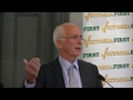 Mr Hayes, who is a past mayor of Bayside, talks about how the minister has absolute power to give permission for the building of apartments so miniscule that no-one else would give permission. How our 'planning system' is completely market driven and only really exists to facilitate a 'financial motivation in planning'. Clifford also talks about environment and embodied energy with respect to planning and construction. This is a great talk, well delivered. Video inside.
Mr Hayes, who is a past mayor of Bayside, talks about how the minister has absolute power to give permission for the building of apartments so miniscule that no-one else would give permission. How our 'planning system' is completely market driven and only really exists to facilitate a 'financial motivation in planning'. Clifford also talks about environment and embodied energy with respect to planning and construction. This is a great talk, well delivered. Video inside.
 Why is Melbourne's population projected to skyrocket, all of a sudden? What is driving this? Why are people confused between refugees and economic immigration. Why can't we communicate and organise in order to bring the government into line? Why do our governments ignore the people?
Why is Melbourne's population projected to skyrocket, all of a sudden? What is driving this? Why are people confused between refugees and economic immigration. Why can't we communicate and organise in order to bring the government into line? Why do our governments ignore the people? Videos of KELVIN THOMSON and all panel speakers have been added to this article. Open mic part now published here too. Today, June 14, 2014, a packed hall with people standing at the back in the Hawthorn Arts Centre voted for a national plebiscite to ask the people what size population they wanted. The forum interacted with a panel of four speakers: Kelvin Thomson, MP for Wills; Sheila Newman, Evolutionary Sociologist and Candobetter.net editor and writer; Clifford Hayes, former Bayside Council Mayor and planning activist; and William Bourke, Leader of the Sustainable Population Party. There was a queue for the open microphone and the meeting closed later than expected. All motions passed with an overwhelming show of hands.
Videos of KELVIN THOMSON and all panel speakers have been added to this article. Open mic part now published here too. Today, June 14, 2014, a packed hall with people standing at the back in the Hawthorn Arts Centre voted for a national plebiscite to ask the people what size population they wanted. The forum interacted with a panel of four speakers: Kelvin Thomson, MP for Wills; Sheila Newman, Evolutionary Sociologist and Candobetter.net editor and writer; Clifford Hayes, former Bayside Council Mayor and planning activist; and William Bourke, Leader of the Sustainable Population Party. There was a queue for the open microphone and the meeting closed later than expected. All motions passed with an overwhelming show of hands.
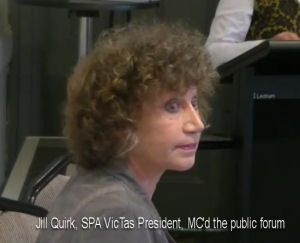

 Residents of Slavyansk and its suburbs were awoken overnight on Thursday [12 June, 2014] by what they say were incendiary bombs that were dropped on their city by Kiev’s military. Witnesses and local media reports suggested that the bombs might be phosphorous. Thus the assault on civilians by Kiev gains in horror and violence, but barely reported by NATO-influenced news services in Australia and elsewhere. (Article and footage from RT News and you-tube)
Residents of Slavyansk and its suburbs were awoken overnight on Thursday [12 June, 2014] by what they say were incendiary bombs that were dropped on their city by Kiev’s military. Witnesses and local media reports suggested that the bombs might be phosphorous. Thus the assault on civilians by Kiev gains in horror and violence, but barely reported by NATO-influenced news services in Australia and elsewhere. (Article and footage from RT News and you-tube)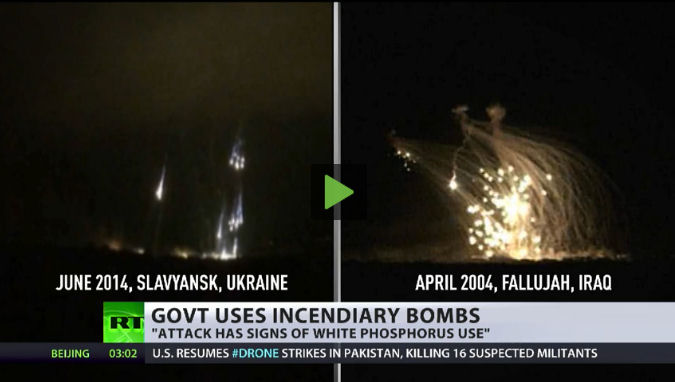
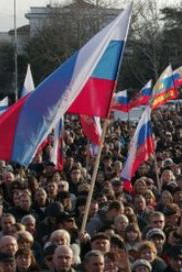
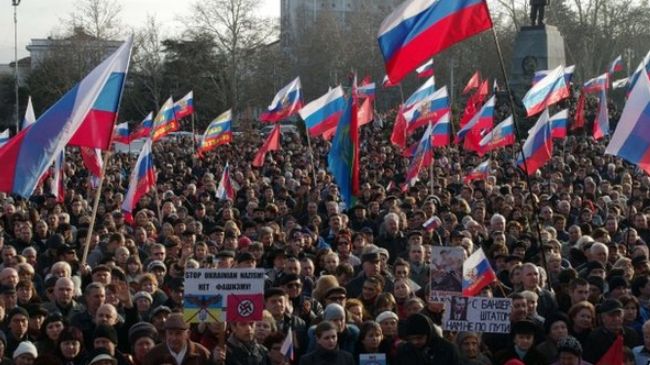
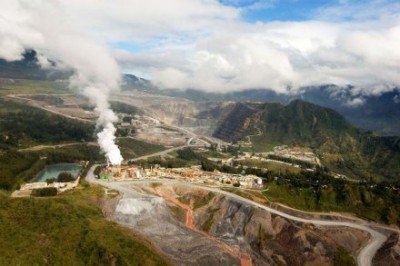

 The ACT Government has obtained licences to kill 1,600 healthy kangaroos, plus an unknown number of joeys, in Canberra’s nature reserves over the next 3 months. However, for the first time, Animal Liberation ACT is standing up for the ACT’s native animals by challenging the Government’s killing program in the courts. The start of the annual kangaroo kill has been delayed after Animal Liberation ACT successfully obtained an injunction in the ACT Civil and Administrative Tribunal on 20 May 2014. Support is now needed to continue our Legal Challenge to Stop the ACT Government's Kangaroo Cull. The newly established Animal Defenders Office has provided pro bono legal services to get us to this point. We now need to raise funds urgently to cover the costs of a barrister for the legal battle ahead of us in the main hearing which began on Tuesday the 3rd of June 2014. The hearing ran for four days, and a decision is expected next week on whether to allow the killing of more than 1,600 kangaroos on Canberra's 'nature' reserves. Small and large donations welcome.
The ACT Government has obtained licences to kill 1,600 healthy kangaroos, plus an unknown number of joeys, in Canberra’s nature reserves over the next 3 months. However, for the first time, Animal Liberation ACT is standing up for the ACT’s native animals by challenging the Government’s killing program in the courts. The start of the annual kangaroo kill has been delayed after Animal Liberation ACT successfully obtained an injunction in the ACT Civil and Administrative Tribunal on 20 May 2014. Support is now needed to continue our Legal Challenge to Stop the ACT Government's Kangaroo Cull. The newly established Animal Defenders Office has provided pro bono legal services to get us to this point. We now need to raise funds urgently to cover the costs of a barrister for the legal battle ahead of us in the main hearing which began on Tuesday the 3rd of June 2014. The hearing ran for four days, and a decision is expected next week on whether to allow the killing of more than 1,600 kangaroos on Canberra's 'nature' reserves. Small and large donations welcome. 
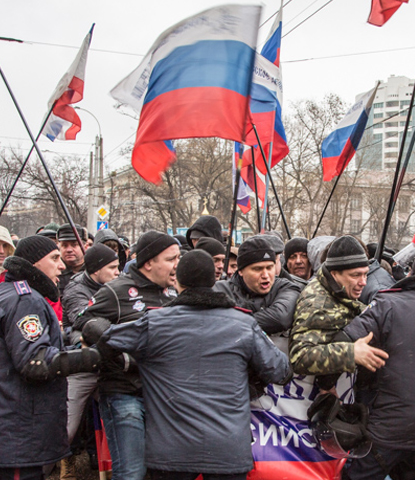
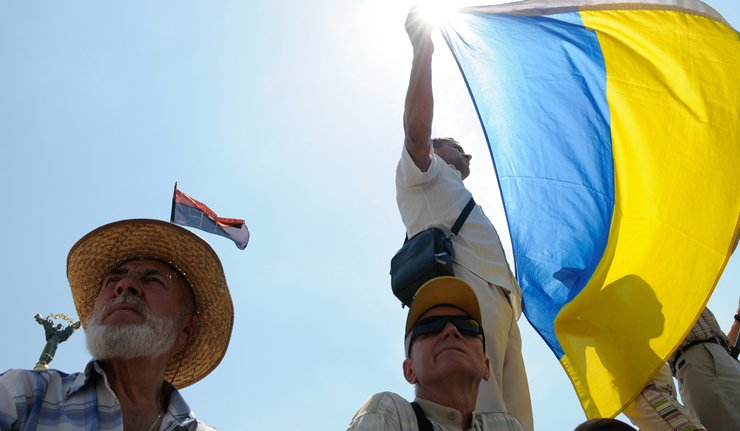
 The following article by wildlife biologist Hans Brunner comments on an unrealistic environmental policy statement from Frankston Council. Yet again, an Australian local council behaves as if it believes it can have its environmental cake and eat it. Surely the councilors and staff at Frankston are not really this naive. But if this isn't naivety, what is it? Some think that most people who have responsibility for environment in government mistakenly believe it is about a marketing exercise to develop 'customer' satisfaction; they really don't have a clue about thermodynamics or by what the environment is, that it includes nature, and that our impacts are enormous. - (Candobetter.net editor)
The following article by wildlife biologist Hans Brunner comments on an unrealistic environmental policy statement from Frankston Council. Yet again, an Australian local council behaves as if it believes it can have its environmental cake and eat it. Surely the councilors and staff at Frankston are not really this naive. But if this isn't naivety, what is it? Some think that most people who have responsibility for environment in government mistakenly believe it is about a marketing exercise to develop 'customer' satisfaction; they really don't have a clue about thermodynamics or by what the environment is, that it includes nature, and that our impacts are enormous. - (Candobetter.net editor)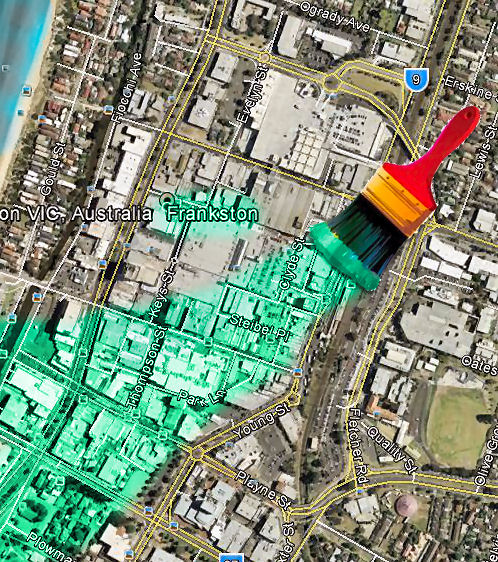



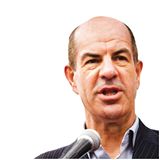


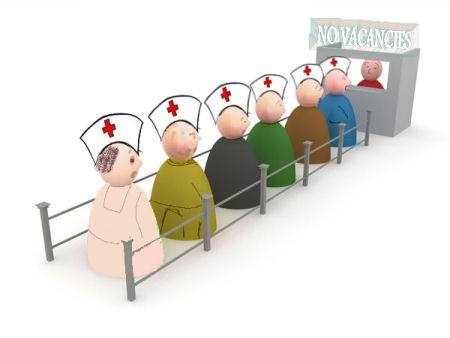

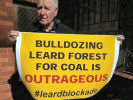
 Today, June 4, 2014 there was a Snap rally to protest at Mining giant Whitehaven Coal is sending an army of bulldozers to flatten the ancient Leard Forest located in the North West of New South Wales. The rally took place at midday at Governor Phillip Tower, 1 Farrer Place, Sydney. Dozens of protesters at Whitehaven Coal's Maules Creek Mine have been arrested. A total of 82 protesters have been arrested and removed from Leard State Forest.
Today, June 4, 2014 there was a Snap rally to protest at Mining giant Whitehaven Coal is sending an army of bulldozers to flatten the ancient Leard Forest located in the North West of New South Wales. The rally took place at midday at Governor Phillip Tower, 1 Farrer Place, Sydney. Dozens of protesters at Whitehaven Coal's Maules Creek Mine have been arrested. A total of 82 protesters have been arrested and removed from Leard State Forest.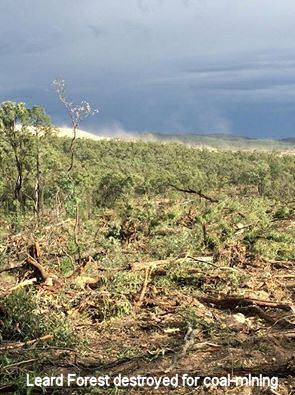
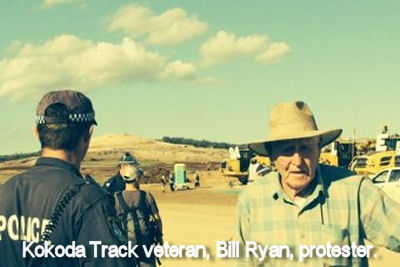
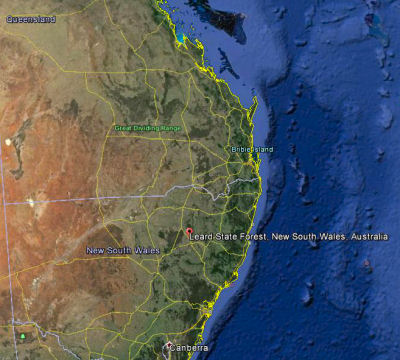

 Is ABC Political News analogous to the hegemony of the pigs of Animal Farm?
Is ABC Political News analogous to the hegemony of the pigs of Animal Farm? Here is an attempt at a satirical analogy.
Here is an attempt at a satirical analogy.
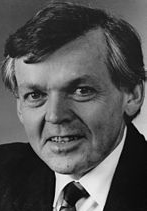

 "The Victorian government appears to be bent on creating ‘rent-seeking’ opportunities for construction companies and financial institutions rather than meeting the transport needs of the community." (Kenneth Davidson) The following article is the text of a speech given by Kenneth Davidson at the Protectors of Public Lands Victoria AGM 10 May 2014 (Emphases and heading by candobetter.net editor.)
"The Victorian government appears to be bent on creating ‘rent-seeking’ opportunities for construction companies and financial institutions rather than meeting the transport needs of the community." (Kenneth Davidson) The following article is the text of a speech given by Kenneth Davidson at the Protectors of Public Lands Victoria AGM 10 May 2014 (Emphases and heading by candobetter.net editor.) The last time I spoke to Protectors of Public Lands Victoria at the AGM in 2011 I made the subject of my talk ‘how PPPs can make you sick as well as poor’. I looked at the financing costs of building three hospitals – The Royal Children’s Hospital, the Royal Women’s Hospital and Bendigo General Hospital - and the difference between funding exactly the same hospitals, using exactly the same architects and builders but financing them with government debt rather than as a PPP would save the Victorian taxpayer $90 million a year or $3.5 billion over the 25 year life of the PPPs.
The last time I spoke to Protectors of Public Lands Victoria at the AGM in 2011 I made the subject of my talk ‘how PPPs can make you sick as well as poor’. I looked at the financing costs of building three hospitals – The Royal Children’s Hospital, the Royal Women’s Hospital and Bendigo General Hospital - and the difference between funding exactly the same hospitals, using exactly the same architects and builders but financing them with government debt rather than as a PPP would save the Victorian taxpayer $90 million a year or $3.5 billion over the 25 year life of the PPPs. In 2013 foreign investors obtained permission from the Victorian government to build or to buy 4,500 houses, amounting to some $18b worth of approvals. Numbers of houses falling into foreign hands are increasing, with the Chinese the biggest buyers and builders, followed by the Canadians, Americans and Singaporeans. There were 12,025 applications to invest in Victorian real estate according to an annual report for 2012-2013. Not one was rejected. On Wednesday 19 March 2014 the Treasurer, The Hon Joe Hockey MP, asked the Economics Committee to inquire into and report on Australia's foreign investment policy as it applies to residential real estate.
In 2013 foreign investors obtained permission from the Victorian government to build or to buy 4,500 houses, amounting to some $18b worth of approvals. Numbers of houses falling into foreign hands are increasing, with the Chinese the biggest buyers and builders, followed by the Canadians, Americans and Singaporeans. There were 12,025 applications to invest in Victorian real estate according to an annual report for 2012-2013. Not one was rejected. On Wednesday 19 March 2014 the Treasurer, The Hon Joe Hockey MP, asked the Economics Committee to inquire into and report on Australia's foreign investment policy as it applies to residential real estate. 
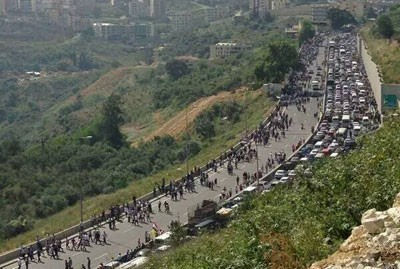 The remarkably high voter turnout in Lebanon grabbed headlines, with the Lebanese dailies publishing thorough analyses and opinion articles and TV channels hosting talking heads and pundits to elaborate on the event. Furthermore, the images of the huge crowds of Syrians went viral.
The remarkably high voter turnout in Lebanon grabbed headlines, with the Lebanese dailies publishing thorough analyses and opinion articles and TV channels hosting talking heads and pundits to elaborate on the event. Furthermore, the images of the huge crowds of Syrians went viral.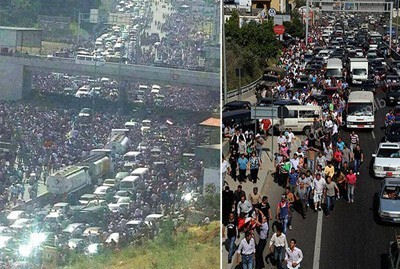

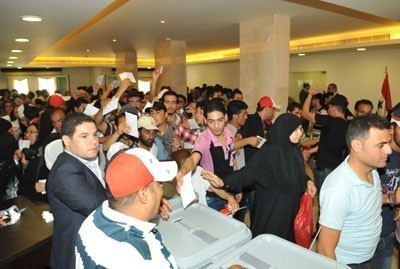

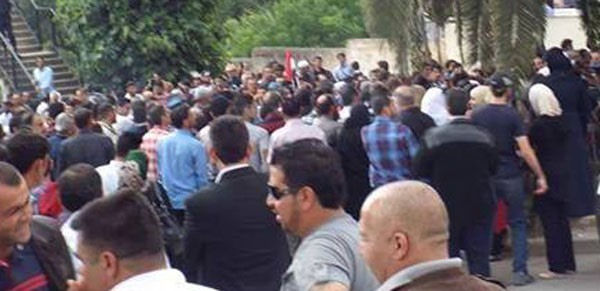
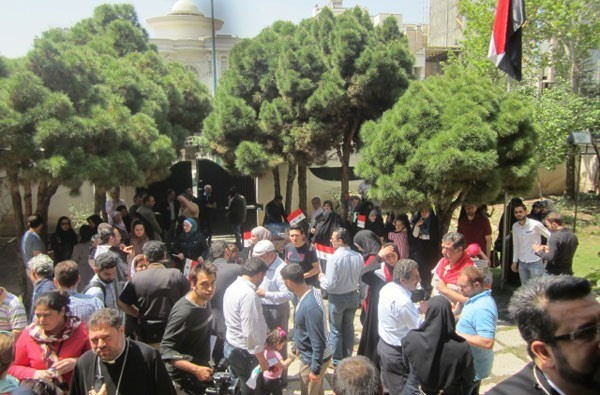
 A definition of advertising: "The act or practice of calling public attention to one's product, service, need, etc., especially by paid announcements in newspapers and magazines, over radio or television, on billboards, etc.: to get more customers by advertising."
A definition of advertising: "The act or practice of calling public attention to one's product, service, need, etc., especially by paid announcements in newspapers and magazines, over radio or television, on billboards, etc.: to get more customers by advertising."  Both these acts constituted advertising of one political party, or parties and political issues at the expense of another party and its political issue(s).
Both these acts constituted advertising of one political party, or parties and political issues at the expense of another party and its political issue(s).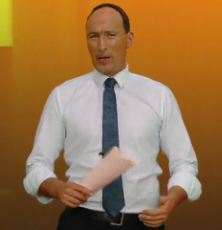
 "What's needed is a kind of "pit bull terrier" state, which would be prepared to start at least a local conflict, to show the weakened Russia how events could develop." (Andrei Fursov, speaking of Ukraine's purpose for the US.) The following article is a very readable lecture transcript by Andrei Fursov (Director of Russian Studies, Moscow University. Member of the International Academy of Sciences) dated 2014/04/14. Transcribed from the spoken Russian and compiled from translated English dubbed text. All headings added by Wikispooks to aid with readability and citation.
"What's needed is a kind of "pit bull terrier" state, which would be prepared to start at least a local conflict, to show the weakened Russia how events could develop." (Andrei Fursov, speaking of Ukraine's purpose for the US.) The following article is a very readable lecture transcript by Andrei Fursov (Director of Russian Studies, Moscow University. Member of the International Academy of Sciences) dated 2014/04/14. Transcribed from the spoken Russian and compiled from translated English dubbed text. All headings added by Wikispooks to aid with readability and citation. "What's needed is a kind of "pit bull terrier" state, which would be prepared to start at least a local conflict, to show the weakened Russia how events could develop." (Andrei Fursov, speaking of Ukraine's purpose for the US.)
"What's needed is a kind of "pit bull terrier" state, which would be prepared to start at least a local conflict, to show the weakened Russia how events could develop." (Andrei Fursov, speaking of Ukraine's purpose for the US.)

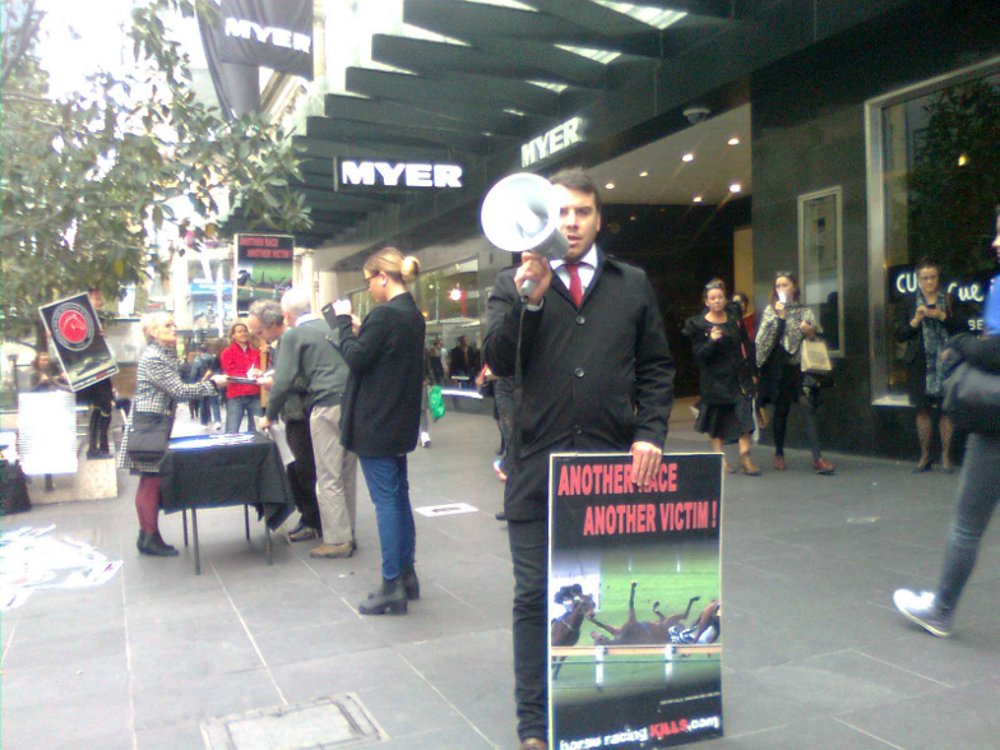
 Illustration photo is used by a real agency.
Illustration photo is used by a real agency. 
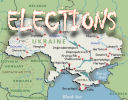 According to exit polls, Pyotr Poroshenko is in the lead with more than 55 percent, with Fatherland Party rival Yulia Tymoshenko gathering approximately 12 percent of the vote. According to the Central Election Commission, the overall turnout [6pm local time] was exceedingly low. Officially the number of polling stations is 32,244. Even in areas controlled by the Kiev regime, the voter turn-out was low. - See more at:
According to exit polls, Pyotr Poroshenko is in the lead with more than 55 percent, with Fatherland Party rival Yulia Tymoshenko gathering approximately 12 percent of the vote. According to the Central Election Commission, the overall turnout [6pm local time] was exceedingly low. Officially the number of polling stations is 32,244. Even in areas controlled by the Kiev regime, the voter turn-out was low. - See more at: 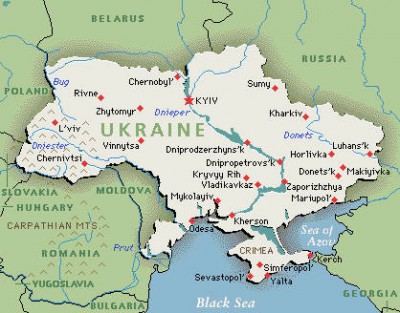
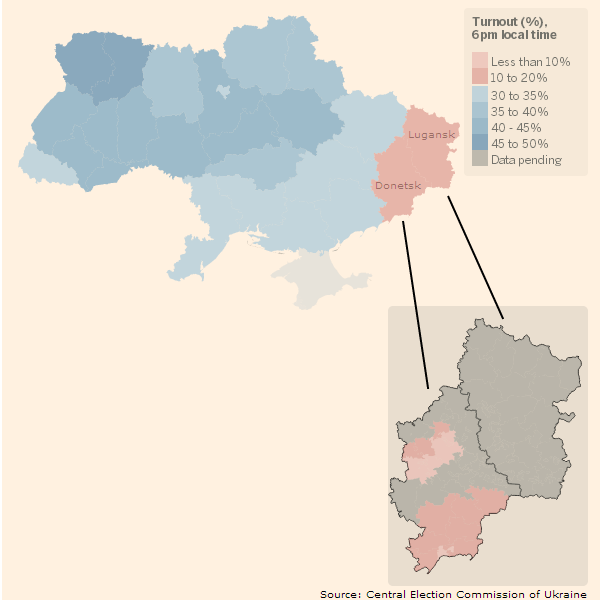
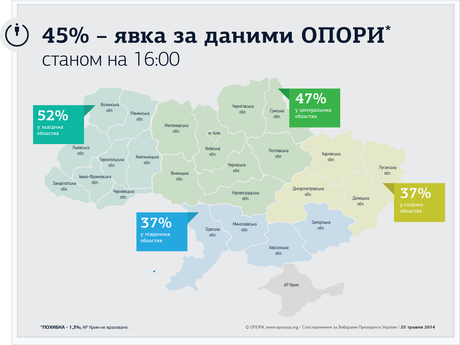



 After 10 years of negotiations, Russia's Gazprom and China's CNPC have finally signed an historic natural gas supply deal which will make them partners in post peak-oil industry for the forseeable future. Russia's relatively huge oil and gas reserves [1] have hardly been tapped due to financial depression following post USSR break-up and generally less wasteful exploration policies prior to this. Russia's future is buoyant, compared to the United States, where gas supplies are inadequate to meet the needs of domestic customers, oil peaked in the 1970s and fracking won't deliver anything like what it promised. In cooperation with China, Russia's position alongside China at the gateway to the Arctic, to the Caspian, and the Middle East put it in an remarkable new position.
After 10 years of negotiations, Russia's Gazprom and China's CNPC have finally signed an historic natural gas supply deal which will make them partners in post peak-oil industry for the forseeable future. Russia's relatively huge oil and gas reserves [1] have hardly been tapped due to financial depression following post USSR break-up and generally less wasteful exploration policies prior to this. Russia's future is buoyant, compared to the United States, where gas supplies are inadequate to meet the needs of domestic customers, oil peaked in the 1970s and fracking won't deliver anything like what it promised. In cooperation with China, Russia's position alongside China at the gateway to the Arctic, to the Caspian, and the Middle East put it in an remarkable new position.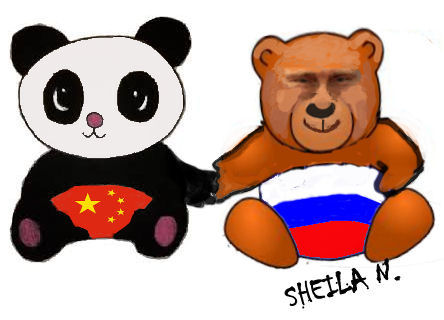 Russia, although it has known great hardship, has the benefited from this by being in touch with reality and knowing the value of good technological and scientific advice. Putin is highly intelligent and uses the media brilliantly, aiming at intellectuals who have become disgusted with the western mainstream media. He treats material in a complex and verifiable way, rather than relying on slogans and ideology. He has forged alliances all over the world with countries that the United States has alienated. Most of them have energy reserves of their own and want alternative markets.
Russia, although it has known great hardship, has the benefited from this by being in touch with reality and knowing the value of good technological and scientific advice. Putin is highly intelligent and uses the media brilliantly, aiming at intellectuals who have become disgusted with the western mainstream media. He treats material in a complex and verifiable way, rather than relying on slogans and ideology. He has forged alliances all over the world with countries that the United States has alienated. Most of them have energy reserves of their own and want alternative markets.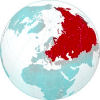
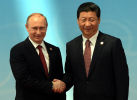 Mark Jones wrote “Battle of the Titans” when he was dying of cancer in 2005. This project animated his last days and he believed that what he had to say was of utmost importance. Many readers will find it prophetic, except in so far as he overlooks the role of Russia as an oil supplier. He does not overlook China, however, and America’s willingness to use all its remaining fuel to retain global hegemony. Here I have extracted passages which fit quite well together and give a somewhat clairvoyant view – from 2005 – of today’s frantic posturing, propagandizing and stirring up trouble in Ukraine, by the United States and Europe as they perhaps tried to influence China to side with them through their power-play in the Ukraine, then, helplessly watched Putin sign the massive gas supply contract with China.
Mark Jones wrote “Battle of the Titans” when he was dying of cancer in 2005. This project animated his last days and he believed that what he had to say was of utmost importance. Many readers will find it prophetic, except in so far as he overlooks the role of Russia as an oil supplier. He does not overlook China, however, and America’s willingness to use all its remaining fuel to retain global hegemony. Here I have extracted passages which fit quite well together and give a somewhat clairvoyant view – from 2005 – of today’s frantic posturing, propagandizing and stirring up trouble in Ukraine, by the United States and Europe as they perhaps tried to influence China to side with them through their power-play in the Ukraine, then, helplessly watched Putin sign the massive gas supply contract with China.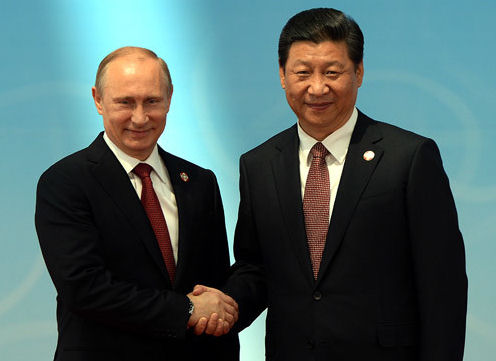


Recent comments